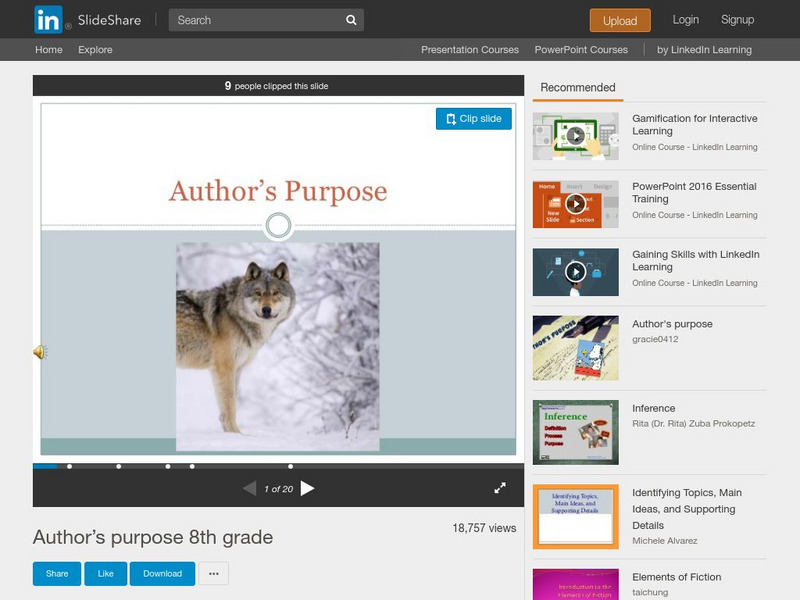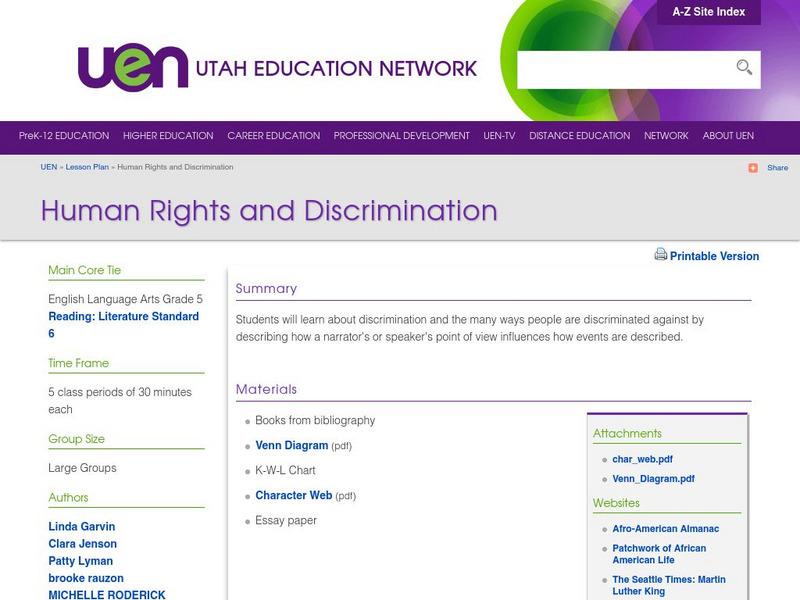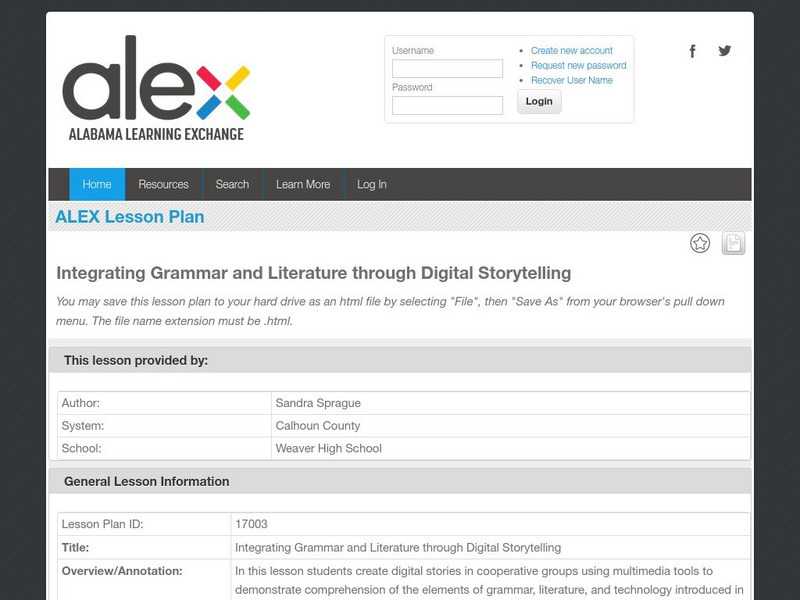College Board
Evaluating Sources: How Credible Are They?
How can learners evaluate research sources for authority, accuracy, and credibility? By completing readings, discussions, and graphic organizers, scholars learn how to properly evaluate sources to find credible information. Additionally,...
E Reading Worksheets
E Reading Worksheets: Author's Purpose Lesson
In this learning module, students will learn about authors' purposes for writing. PowerPoint lessons, worksheets, and quizzes are provided to reinforce the understanding of why authors write assorted pieces. This module is designed to...
Tom Richey
Slide Share: Author's Purpose 8th Grade
A slideshow with twenty slides with information and examples of four different purposes an author can have for writing a text: to entertain, to persuade, to express, or to inform/explain.
Reading Rockets
Reading Rockets: Looking at Writing: First Grade
First graders write many times a day to express their interests - they are writing with a purpose through stories, letters, and lists. In this section, you'll find writing assessment resources, writing strategies, and additional tip...
ReadWriteThink
Read Write Think: Defining and Exploring an Author's Stylistic Choices
Contains plans for two lessons that teach students how to recognize an author's use of style in literature. These plans use "Their Eyes Were Watching God" by Zora Neale Hurston as an example, but the basic ideas can be adapted to other...
British Library
British Library: 19th Century Non Fiction Texts: Crime & Punishment
This thematic collection will allow students to read and understand 19th-century non-fiction texts, and support them in identifying key features for a range of genres, audiences, and purposes. Each source is accompanied by original...
British Library
British Library: 19th Century Non Fiction Texts: Work & Welfare
This thematic collection will allow students to read and understand 19th-century non-fiction texts, and support them in identifying key features for a range of genres, audiences, and purposes. Each source is accompanied by original...
British Library
British Library: 19th Century Non Fiction Texts: Gender, Behaviour & Etiquette
This thematic collection will allow young scholars to read and understand 19th-century non-fiction texts, and support them in identifying key features for a range of genres, audiences, and purposes. Each source is accompanied by original...
British Library
British Library: 19th Century Non Fiction Texts: Education
This thematic collection will allow students to read and understand 19th-century non-fiction texts, and support them in identifying key features for a range of genres, audiences, and purposes. Each source is accompanied by original...
Fun Trivia
Fun Trivia: The Four Types of Writing Trivia Quiz
A fifteen-question quiz in which the reader identifies a type of writing for each situation: argumentation, exposition, narrative, or description. Correct answers are displayed once answers are submitted.
Annenberg Foundation
Annenberg Learner: Workshop 2: Making Writing Meaningful
Workshop 2 demonstrates how teachers use authentic sources and topics to prompt students to write about things that matter to them, subjects that relate to their lives, relationships, and communities. The topic may be the students -...
Utah Education Network
Uen: Human Rights and Discrimination
This unit plan from the Utah Education Network engages students in understanding how authors backgrounds often impact their writing choices. "Human rights" and "discrimination" are the featured topics in the five texts incorporated in...
Other
Lopez Books: Joseph Bruchac Essay
Joseph Bruchac gives a detailed description of his life and also discusses his involvement as a writer of Native American literature. Bruchac discusses his time as a volunteer teacher in West Africa, his memories of growing up with his...
Other
The Literary Link: Washington Irving: On Style and Purpose in Short Story
Two excerpts from Early American author Washingtom Irving about his preference for writing short works and why.
Alabama Learning Exchange
Alex: Grammar and Literature Through Digital Storytelling
For this lesson students create digital stories in cooperative groups using multimedia tools to demonstrate comprehension of the elements of grammar, literature, and technology introduced in the lesson. Students become actively involved...








